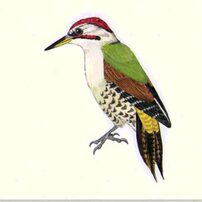DRUMBLOG CONTENTS


LESSONS FROM STARR-KING DRUMMING FOR SPIRIT CIRCLE
KATHRYN'S PERSONAL DRUMMING BLOG
FAQs FOR BEGINNING DRUMMERS
 I'M READY TO DRUM! WHAT'S THE BEST TYPE OF DRUM TO START WITH?
I'M READY TO DRUM! WHAT'S THE BEST TYPE OF DRUM TO START WITH?
That all depends on you! Do you already have a drum? Are there drums in the culture you identify with? You might find it easier to learn to play something you already are familiar with. What kind of music do you want to play, and what kinds of drums are used in that music? Are you drawn for some inexplicable reason to a specific type of drum? If so, find the best drum of that type that you can afford, and the chances that you will actually stick with it and become a drummer for life are increased immensely (go with your heart). If you're starting from scratch, here are some things you might want to consider: How big do you want your drum to be, and how heavy a drum can you comfortably play? Do you want a drum that you play with your hands (the whole hand, that is), or a smaller drum that you play with your fingers? Do you want to be able to walk or dance with your drum, or do you want to or have to stay seated? The Drum Circle Drums page of this website shows some pictures of drums commonly seen in recreational and community drum circles.
 Djembes, ashikos, dun duns, and congas are examples of larger (up to 3 feet high) drums that originated in Africa or in areas like the Caribbean islands and South America where African slaves developed them from the materials at hand. They are played with the player standing up with the drum(s) on a stand in front of them, or with the player seated, holding the drum between the legs. They are also played while being carried with a strap around the neck or over the shoulder.
Djembes, ashikos, dun duns, and congas are examples of larger (up to 3 feet high) drums that originated in Africa or in areas like the Caribbean islands and South America where African slaves developed them from the materials at hand. They are played with the player standing up with the drum(s) on a stand in front of them, or with the player seated, holding the drum between the legs. They are also played while being carried with a strap around the neck or over the shoulder.
Various types of frame drums, which are most probably descended from sieves used for sifting and sorting grain, are found in almost every indigenous culture on the planet, and range in size from diameters of 5 or 6 inches to ones of 30 inches--some have jingles (tambourines and riqs), some have snares (bendirs), and some have chains or rings (deffs).
Goblet drums--for example, doumbeks and darbukas--are ubuquitous throughout the Middle East, Africa, and in the New World wherever the diaspora of people from those areas led them; they also come in a range of sizes, and you can play with them upright between your legs like a djembe, or sideways on your lap (for recreational drum circles at least).
Consult reference books or websites like Wikipedia to find out the specific characteristics of different drums. Then try out as many as you can! If you live in a large city, you can probably find music stores or stores that cater to people from specific cultures that carry a selection of drums from that culture. Cultural festivals are good places to scout out likely drums, as are "green" festivals and other venues that allow exploration of alternative healing or spiritual practices. And of course
or websites like Wikipedia to find out the specific characteristics of different drums. Then try out as many as you can! If you live in a large city, you can probably find music stores or stores that cater to people from specific cultures that carry a selection of drums from that culture. Cultural festivals are good places to scout out likely drums, as are "green" festivals and other venues that allow exploration of alternative healing or spiritual practices. And of course attending drum circles is an excellent way to try out different drums. and begin your new spiritual quest.
attending drum circles is an excellent way to try out different drums. and begin your new spiritual quest.

For those living in the far-out suburbs or in rural areas, buying online is not a bad way to go (my personal, favorite sources are listed in the online section of this page), even if you haven't had a chance to actually see or try the drum. Most internet sources for buying drums will let you return them or exchange them within 30 days. Ultimately, you will do best with a drum that exactly fits and suits YOU--the size, weight, shape, materials, and especially the sound that best pleases you.
Do remember that you're not limited to only one drum! Developing some form of musical-instrument acquisition syndrome is a risk--but may not be a bad thing (depending on your monetary situation). But start with one, acquire slowly, and keep an open mind and heart as you explore the world opening up to you. As you gain experience, both with drums and with yourself, you can experiment with instruments that have specific sounds or effects that will let you best express yourself in ways that are most important to you.
 ARE ALL DRUM CIRCLES ALIKE? WHAT KINDS ARE THERE?
ARE ALL DRUM CIRCLES ALIKE? WHAT KINDS ARE THERE?
There are almost as many different kinds of drum circles as there are drum circles! However, most follow one or more of the following patterns.
Culturally specific drum circles usually are facilitated by an expert who is a native of the specific culture whose rhythms are played. Sometimes they also involve a lesson preceding the actual circle, where the rhythms are introduced. Parts may be handed out, and people are expected to know their part, play it on the appropriate drum, and stick to it for a long time! The facilitators of these circles often teach classes on the drums separately. In my area (the San Francisco Bay Area), I have found African, Indian, Native American, Brazilian, and Cuban rhythm circles--in addition to other cultures.
Informal drum circles often occur in public places like parks, parking lots, or public squares. Drums are not provided. There is no leader or facilitator, and there may be more than one group rhythm being played at the same time. Some of these groups have been meeting for decades, and advertise almost exclusively by word-of-mouth or sound-of-drum drawing in passersby. These circles can be a lot of fun if you know what you're doing, but can be confusing and overwhelming for beginners.
Recreational drum circles are community events, usually facilitated by a charismatic leader who is very good at bringing people together, giving each a drum or percussion instrument, and then drawing ALL of the attendees into the magical world of making music together. Drums may or may not be provided (the flyers and advertisements should specify), and the only consideration given to "form" is that you not hurt yourself or your drum as you play along!

Health and wellness drum circles often occur in hospital, rehabilitation, or other community centers. Their purposes may vary, but in general they involve specific activities structured to reduce stress and increase the immune response. Drums are usually provided. These circles may be offered as a series, but newcomers are always welcome, and can participate in whatever ways they feel most comfortable.
Spiritual drum circles are given by churches, spiritual communities, and other groups interested in using rhythm to strengthen the mind-body-spirit connection. Often pagan rituals and meditation are included. Drums are usually provided. This group also includes shamanic (or "journeying") drumming, in which the participants drum to achieve states of altered consciousness.
So, whatever your personal preferences are, explore all of the available drum circles that appeal to you--you're bound to find several that you like and want to attend regularly. Look for posters and flyers on community bulletin boards and in music stores and libraries, and search on the internet (there are many listed as Meet-Ups) to find ones that are held in your neighborhood. Also, talk to your friends--you'll be surprised at how many people you know that drum, but don't talk about it unless they're invited to!

DO I HAVE TO KNOW HOW TO PLAY A DRUM IN ORDER TO PARTICIPATE IN A DRUM CIRCLE? WHERE CAN I GO TO LEARN?
For most recreational and communal drum circles (see above), the drums will be provided, and you will be taught all you need to know at the beginning of the program. For culturally specific drum circles, workshops, and other events, the event publicity will usually specify what skill levels are needed. Often, you can gain a lot of insight and absorb a lot of knowledge and the feel of the music at a circle that is intended for skill levels higher than your own, so explore to your heart's content; just don't expect the event teachers/facilitators to teach at a beginner level if the event is publicized to be for intermediate/advanced players.
There are lots of ways to learn how to drum. Probably the best is to find a teacher that specializes in the kind of drumming you want to do. These days, almost all teachers have an internet presence, so use your favorite search engine (I'm partial to DogPile) to find local experts. Or start with a drum-circle facilitator--if they don't teach, they probably know a lot of teachers. While private lessons can be expensive, you will get individual instruction and immediate feedback on your technique. Some teachers also provide group classes and workshops--if the class is small, you get some individual attention, and regardless of numbers, you will meet other people who like to drum and do so at your level. Some community colleges or community schools of music and arts offer classes that are less expensive than those offered by a private teacher, so if there are any in your area, check their schedules and curricula. Even if you can't find a teacher that lives locally, many teachers offer lessons via SKYPE, so don't be afraid to ask!
 If you can't find a teacher, you might be able to learn from a DVD; get recommendations from other learners or experts you know, or see if you can find some at a music store or drum store. Searching for learning materials on Amazon or Alibris will yield LOTS of results, but it's best to read the "bumph" critically, and check the customer reviews to see whether the DVD or book you're interested in is geared to people with your particular learning styles.
If you can't find a teacher, you might be able to learn from a DVD; get recommendations from other learners or experts you know, or see if you can find some at a music store or drum store. Searching for learning materials on Amazon or Alibris will yield LOTS of results, but it's best to read the "bumph" critically, and check the customer reviews to see whether the DVD or book you're interested in is geared to people with your particular learning styles.
Can you learn using You-Tube? Of course you can. However, a caveat--many people post videos that are more demonstrations of their own expertise than they are lessons. BUT, some good lessons are there, and once you get started, you can find lots of posts that you can play along with.
Happy learning! Remember, we PLAY music (don't "work" it), so relax and have fun.
 IS IT EXPENSIVE TO ATTEND DRUM CIRCLES, WORKSHOPS, AND LESSONS?
IS IT EXPENSIVE TO ATTEND DRUM CIRCLES, WORKSHOPS, AND LESSONS?
As in everything else, there is a range of prices or admission fees charged for attending drumming events. Almost all circles, however, have a sliding fee scale, and many of them will state "No one turned away for lack of funds" in their publicity. Here in the SF Bay Area, $10 seems to be the normal fee charged for a private drum circle; many community and recreational ones are free. Sometimes there is an extra charge (~$5) for using the host/facilitator's drums. Workshop fees vary, but expect to pay about $25 to $50 for a 2-hour workshop taught by a "djembe-fola" (African drumming master). You might be able to exchange your labor for a reduced fee.
Health and wellness drum circles, as well as some community drum circles, are often free. Occasionally spiritual drum circles will request a "love offering" or donation of up to ~$25. When deciding whether or not this is expensive, or how much you should donate for such a circle, remember that the facilitators are often trying to eke out a living doing what they do; even though they are often professionals, a little research will reveal how art and music therapists are faring in the labor market these days. Drum circles have also become a popular fund-raiser for charitable organizations. PLEASE pay what you think is fair, and what you can afford.
Drumming lessons in a small-class setting are a real bargain! One of my current teachers charges only $10 for a 2-hour session, and another a little less than $20 for a 90-minute instructional drum session. A quick survey of the websites of local teachers reveals that 6- to 8-week sessions can cost as much as $300, but usually cost about $200 or so.
 WHAT IF I WANT TO DRUM BY MYSELF? IS THIS OKAY?
WHAT IF I WANT TO DRUM BY MYSELF? IS THIS OKAY?
In the wonderful world of drumming, EVERYTHING is OK! When you're at a drum circle, you are, by definition, playing with other people, but you can get a lot of enjoyment out of drumming by yourself. Many people make drumming a part of their regular spiritual practice, and others love to drum along with their favorite music recordings.
My first experience in drumming was at Patricia Frame's monthly drum circle at the Walnut Creek Cancer Support Community (CSC, formerly Wellness Community) while surviving a year-long course of interferon therapy. Various sound-healing modalities found their way into my consciousness, and I soon discovered that drumming very simple rhythms for myself (1) added structure to my day, (2) gave me something to do but not think about too much, and (3) actually made me feel better. Therefore, I acquired a Bongo-Cajon and just drummed for hours and hours while sitting in my recliner in as comfortable a position as possible while feeling, well, like I was undergoing a year of interferon therapy. And when my year was over, I kept on drumming.
 For individual drumming, of course you will need a drum. Perhaps you already have one, if someone close to you has gifted you with one. If not, search for one that "calls" or "sings" to you, both visually and acoustically. You'll know it when you find it. Meanwhile, any drum that feels comfortable for you to play and that you can afford will do. Hint: Frame drums, including Native American "buffalo" drums, are a good place to start.
For individual drumming, of course you will need a drum. Perhaps you already have one, if someone close to you has gifted you with one. If not, search for one that "calls" or "sings" to you, both visually and acoustically. You'll know it when you find it. Meanwhile, any drum that feels comfortable for you to play and that you can afford will do. Hint: Frame drums, including Native American "buffalo" drums, are a good place to start.
Spend some time getting used to your drum--how it feels, how many different kinds of sounds it makes, how they differ as you move yourself and your drum into different positions. Then slowly become deliberate about achieving the sounds you want when you want them. Pace yourself, so that you never become too frustrated or stressed.
Explore different learning methods, search out the appropriate instruction, listen to (and drum along to) as many recordings as you can of the drum you are playing. Gradually it will become part of you.
Drumming by yourself is an EXCELLENT way of both getting to know and like yourself, and of following practices that will allow you to change your life and follow your own path to wherever you want to go. Entering into and staying in states of relaxation and mindfulness help you discover, enjoy, and entrain your own natural rhythms with those of the universe.

Things to remember as you embark on this journey:
You are now exactly where you are meant to be.
You have the rest of your life to get to where you will end up.
Relax and surrender yourself to experiences.
WANT TO KNOW SOME OTHER THINGS? ASK, AND YOUR
QUESTIONS WILL BE ANSWERED!

